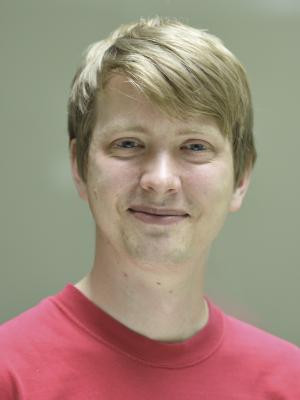Establishing RSE groups at different levels
Posted on 23 May 2018
Establishing RSE groups at different levels
 By Martin Callaghan, University of Leeds, Daniel S. Katz, University of Illinois, Alexander Struck, Cluster of Excellence Image Knowledge Gestaltung, HU-Berlin, and Matt Williams, University of Bristol,
By Martin Callaghan, University of Leeds, Daniel S. Katz, University of Illinois, Alexander Struck, Cluster of Excellence Image Knowledge Gestaltung, HU-Berlin, and Matt Williams, University of Bristol,
This post is part of the Collaborations Workshops 2018 speed blogging series.
This blog post is the result of a discussion group during the Collaborations Workshop 2018 organised by the Software Sustainability Institute. We talked about some national and institutional efforts being made to establish RSE groups and positions and are writing this blog to share our thoughts. The most successful of these RSE efforts have come from within UK universities. We believe sharing strategies and case studies on how to implement pilots should help grassroots movements and support decision makers at the same time. Researchers developing code who would like to regularly meet and create a local group should benefit from this post, as well as people in positions to pilot an RSE group in their institution. National-level organisations and networks of lobbying RSEs may find some insights too.
Funding agencies mandating software management plans (SMPs) in their calls (e.g. https://epsrc.ukri.org/funding/calls/softwarefuture/) might also benefit.
Strategies for establishing RSE groups
Before launching into the strategies and methods for achieving the goal, it’s useful to define what we mean by an RSE group. In the UK there already are different models for how, at an institutional level, RSEs can group together. Perhaps they’re just a loose coalition of self-identifying ‘scientific programmers’ or perhaps they’re something more formal. Among the formal groups, there are some who work on a model of hiring a number of core-funded RSEs, who are, in turn, hired out to research groups to facilitate their work. There are other groups mostly formed of grant-funded individuals, working in their own groups, who collude through some central facility.
These different models may be a function of the structures of the different universities or just natural variation. Either way, having different models, all running at the moment, will allow us to see which are more successful at their goals in time.
Nationally, an RSE group would have a different purpose and a different goal. It’s less about how to assign individuals to work and more about creating an environment for networking and lobbying within the country and creating a point of contact for other national groups.
Institutional issues
At an institutional level there are various approaches that can be used to facilitate the establishment of an RSE faction. Although some universities have had the opportunity to seed an RSE group through an EPSRC research fellow, this isn’t available to all universities.
Despite that, the early identification of an individual (or individuals) who have a similar holistic perspective and the opportunity to communicate at an appropriate strategic level in the organisation to identify roles and opportunities for more domain focussed RSEs can be beneficial. At the other end of the spectrum, RSEs with domain skills and knowledge are essential; these are the people working with researchers to develop research codes that embody the principles of good research codes.
Other than determining the level at which RSEs might operate most effectively, some consideration should be made of the type of person who works as an RSE. A displaced IT developer or Post-Doctoral Research Associate between research contracts might have the right skills to be an RSE but may not understand that the RSE role is very different to their previous role. At the same time, managers need to understand that although these people might make very good RSEs, a period of onboarding and acclimatisation is of the essence.
National issues
The concept of Research Software Engineers (RSEs) came from a discussion group at the UK SSI’s Collaborations Workshop 2012 (CW12). The members of this group all worked at UK universities, and the initial RSE organisation has primarily been a UK organisation. But people in other countries have seen this activity, and realised it also applies to them (e.g. Germany) and their institutions—they can recognise similar problems and that a similar solution might be effective. Of course, there are also difference between countries: what worked in the UK may not work as well in more federated/localised environments (e.g., Germany, USA.)
In addition, the Software Sustainability Institute has been running a survey of RSEs, primarily in the UK, and starting this past year (2017), it became a set of national, localised surveys that ran in parallel in the UK, Canada, Netherlands, Germany, South Africa, and the USA. The process of creating, distributing, and answering these surveys has raised additional awareness of the RSE movement, and this may lead to pressure for other national organisations.
Looking at national RSE groups, German and Dutch groups are established and growing, a group in Norway launched in January, there has been initial work towards RSE groups in Australia and the USA, and an upcoming Research Software Conference in Canada aims “to further build a cohesive Canadian community of academic research software developers.“
In the UK, EPSRC RSE Fellowships can be and have been used to establish RSE groups within Universities. This model may work in other countries, particularly those with strong central organisation of their universities. One model for starting national groups is to use national events, for example, to add a day or a track to a conference that a number of people in one country are already planning to attend that has (or needs) an RSE theme. A ‘science’ track could be added to a Software Engineering conference or a day of software engineering could be added to a Digital Humanities conference.
One could also create national days after the current UK RSE conference, or similar international events that bring together a set of potential national RSE organisers.
Conclusions
The concept of Research Software Engineers, introduced in the UK, has become increasingly useful and used in a number of universities and countries. This blog post has discussed a set of methods for establishing RSE groups and communities within universities at various levels and within countries. We hope it is useful to those who want to start a new group, whether from existing RSEs or new RSEs.

